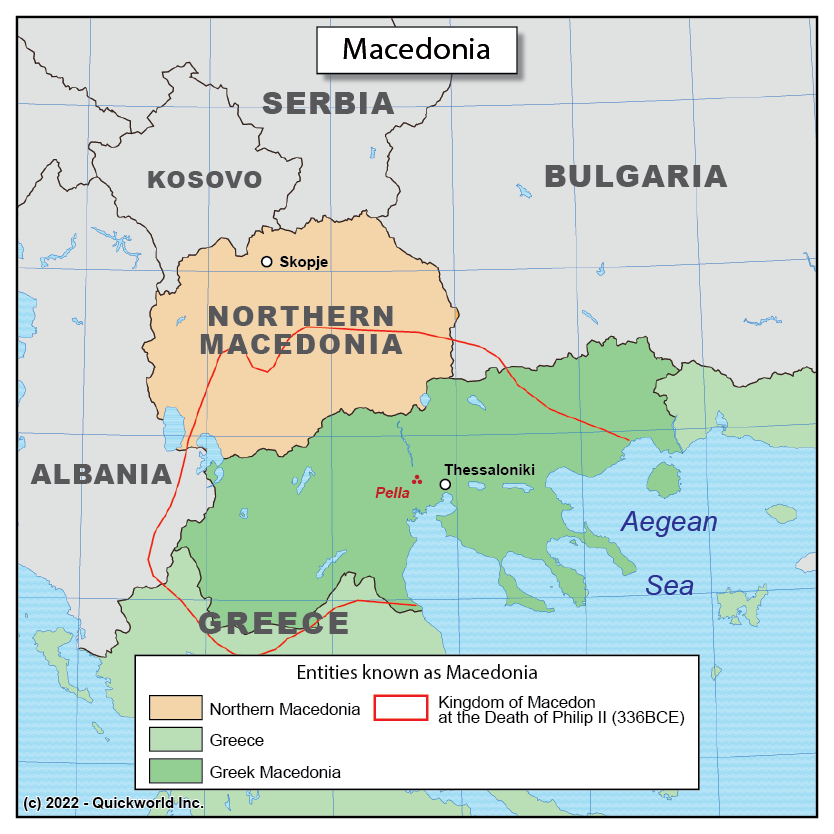Our "What's in a name" Series takes us to Macedonia, a name that has a long history and has been a source of much controversy.
The ancient Kingdom of Macedon is famous for having been the starting point of Alexander's formidable conquest of an empire that went from Europe to the Indus River. While Alexander, who lived in the 3rd Century BC, was not based in the Greek City-States, his kingdom was located in the Northern half of modern Greece. Alexander was also of Greek culture, and his empire was part of the Hellenistic World.
Fast forward to modern times and the region is still called Macedonia, though its sovereignty has been hotly contested by at least four powers: the Ottoman Empire, Greece, Yugoslavia and Bulgaria. As of today, the southern half is under Greek sovereignty, while the Northern half became part of Yugoslavia in 1913. Both Regions were known locally as Macedonia. The local population was a mix of Greeks, Albanians, Turks and Slavic people who called themselves Macedonians and were close to both the Bulgars and the Serbs. When Yugoslavia imploded in the early 1990s, the former Yugoslav Republic of Macedonia (FYROM) became independent, but the Greek Republic strongly objected to the new country adopting both the name Macedonia and some symbols of the ancient Macedonian kingdom, which predated the settlement of Slavs in the region. The UN accepted the new country under the temporary name FYROM, until an agreement was found and it was officially renamed the Republic of North Macedonia in 2019.
More on North Macedonia and Greece.
Macedonia


